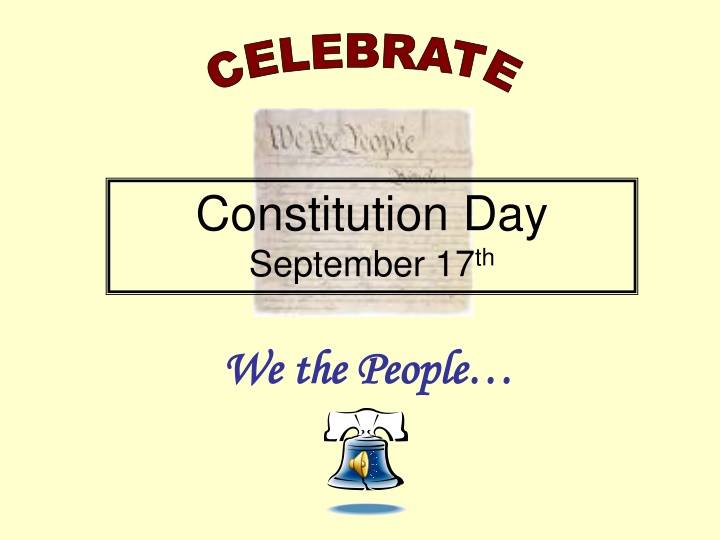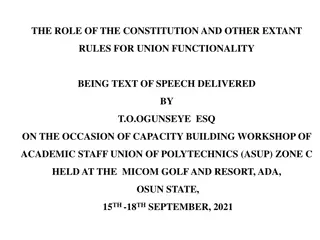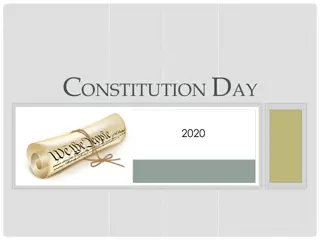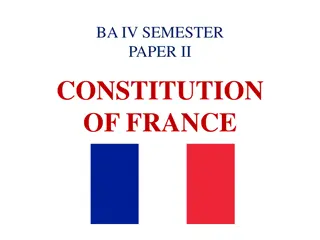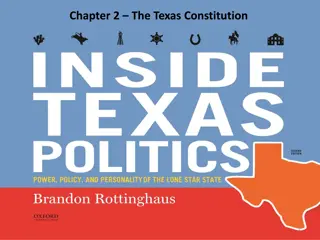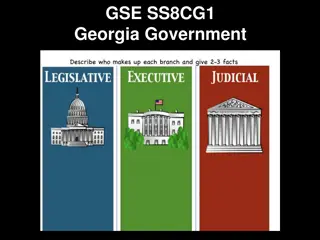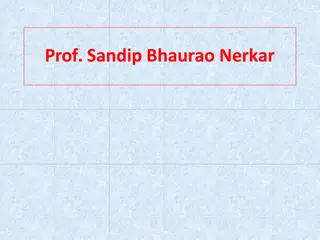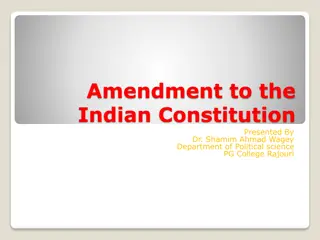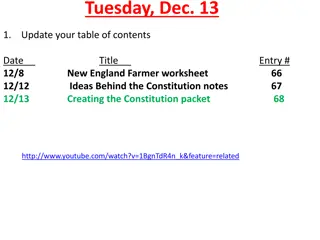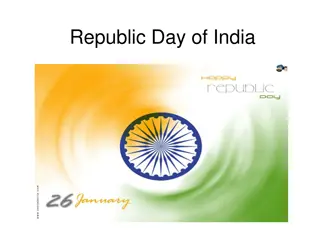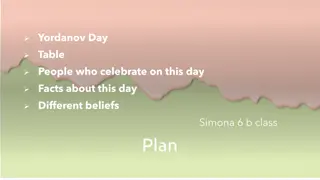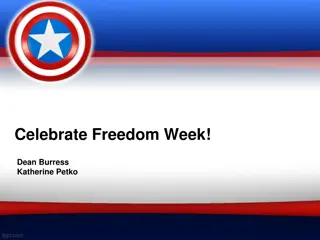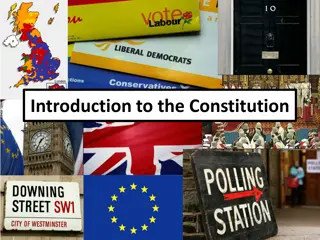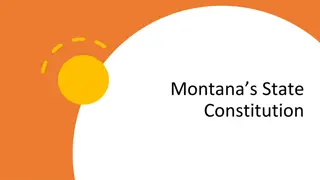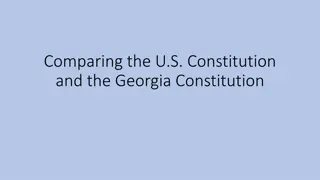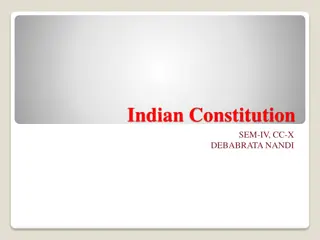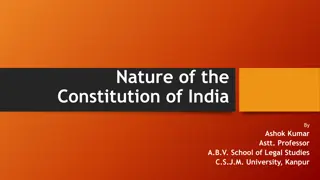Celebrate Constitution Day: A Brief History of the U.S. Constitution
Learn about the significance of Constitution Day on September 17th and the journey that led to the creation of the U.S. Constitution. From the challenges posed by the Articles of Confederation to the final signing of the Constitution, delve into the key events and figures that shaped the foundation of the American nation.
Download Presentation

Please find below an Image/Link to download the presentation.
The content on the website is provided AS IS for your information and personal use only. It may not be sold, licensed, or shared on other websites without obtaining consent from the author.If you encounter any issues during the download, it is possible that the publisher has removed the file from their server.
You are allowed to download the files provided on this website for personal or commercial use, subject to the condition that they are used lawfully. All files are the property of their respective owners.
The content on the website is provided AS IS for your information and personal use only. It may not be sold, licensed, or shared on other websites without obtaining consent from the author.
E N D
Presentation Transcript
CELEBRATE Constitution Day September 17th We the People We the People
Celebrate the Constitution After declaring independence from Great Britain, the colonies knew that if they wanted to grow and prosper, they would need a plan for unity. Magna Carta 1215 After declaring independence from Great Britain, the colonies knew to grow and prosper, they needed a plan for unity. Effective March 1, 1781, the colonies were governed by the Articles of Confederation. Articles of Confederation. Effective March 1, 1781, the colonies were governed by the Mayflower Compact 1620 Thomas Jefferson Thomas Jefferson Author of the Declaration of Independence Author of the Declaration of Independence English Bill of Rights 1689 Articles of Confederation 1781 Declaration of Independence 1776
Celebrate the Constitution The Articles of Confederation posed many challenges. The powers of the central government were weak and the articles were impossible to amend. John Adams John Adams Founding Father and 2 Founding Father and 2nd nd President President The Federalist Papers 1787-1788 Articles of Confederation 1781 United States Constitution 1788
Celebrate the Constitution In May of 1787, delegates from each state met to write a new Constitution. Through discussion and debate over issues like states rights, individual rights, and the power of the national government, a compromise was made and the result became the law of the land, the U.S. Constitution. James Madison James Madison Father of the Constitution Father of the Constitution Amendments 11-26 1795-1992 United States Constitution 1788 The Bill of Rights 1791
Celebrate the Constitution Popular Sovereignty The Constitution is the guide which I never will abandon The Constitution is the guide which I never will abandon. . -George Washington September 17, 1787 was a glorious day! The U.S. Constitution was finally signed by the delegates of the Constitutional Convention. The Constitution included a strong central government based on compromise; it outlined national powers and provided provisions for amending the Constitution. Checks and Balances Limited Government Separation of Powers George Washington George Washington President of the Constitutional President of the Constitutional Convention and 1 Convention and 1st st President President
Celebrate the Constitution Because there was so much interest and debate regarding individual rights, on December 15, 1791, ten amendments known as the Bill of Rights were added to the U.S. Constitution. Since then, seventeen more amendments have been added to the Constitution. Federalism Individual Rights Republicanism Benjamin Franklin Benjamin Franklin Signer of the Constitution and Signer of the Constitution and Founding Father Founding Father
Celebrate the Constitution Today Today, the law of the land is still the U.S. Constitution. It has sustained controversial issues, a civil war, and the changes that 200 years of American society brings. But it is strong and enduring. For that, We The People celebrate today the strength and flexibility of the U.S. Constitution. The Constitution of the United States was made not merely for the generation The Constitution of the United States was made not merely for the generation that then exist, but for the posterity that then exist, but for the posterity - - unlimited undefined, endless, perpetual unlimited undefined, endless, perpetual posterity posterity -Henry Clay (1877 Henry Clay (1877- -1852) 1852) American statesman American statesman - - U.S. Congressman and Senator U.S. Congressman and Senator
Preamble of the U.S. Constitution We the People We the Peopleof the United States, in Order to form a more perfect Union, establish Order to form a more perfect Union, establish Justice, insure domestic Tranquility, provide for the Justice, insure domestic Tranquility, provide for the common defence, promote the general Welfare, and common defence, promote the general Welfare, and secure the Blessings of Liberty to ourselves and our secure the Blessings of Liberty to ourselves and our Posterity, do ordain and establish this Constitution Posterity, do ordain and establish this Constitution for the United States of America. for the United States of America. of the United States, in As a class, read the Preamble of the United States Constitution.
